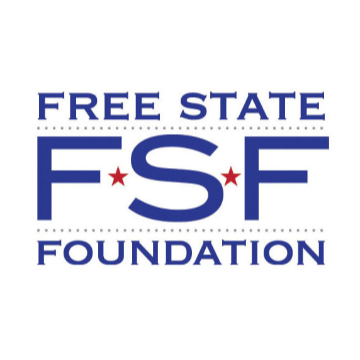
The Regulatory Review
@TheRegReview
Followers
6K
Following
13K
Media
5K
Statuses
50K
Your daily source for regulatory news, analysis & commentary. From the Penn Program on Regulation at @Penn. RTs & links ≠ endorsements.
Philadelphia, PA
Joined February 2011
The sheer volume of sports-betting advertisements contributes to rising rates of problem gambling and warrants greater regulation, even when the ads themselves are not misleading, Mark Conrad of Fordham University argues in a recent article. https://t.co/jpJMF1RCwC
0
0
0
In a recent article, Jacob Hamburger of Marquette Law argues Trump’s birthright-citizenship order regulates citizens—not immigrants—by forcing Americans to prove parents’ status, burdening benefits and IDs, and threatening core rights. https://t.co/ZpANzXG5G1
0
0
0
A new Texas law restricts certain noncitizens from China, Russia, Iran, and North Korea from purchasing or leasing property, continuing an existing tradition of anti-alien land laws in the state. https://t.co/6V64b3qhRc
0
0
0
In a recent essay for The Regulatory Review In Depth, Jiawei Zhang argues AI governance often falls into three “Nirvana” fallacies and urges pragmatic, cost-aware, comparative policymaking. https://t.co/U7IovRXOr3
0
0
0
The community, the vibes, and the energy were truly unmatched! All weekend long, NYC came together at our first-ever CELSIUS Energy House to move, celebrate, recover, and recharge — all in true LIVE FIT GO fashion. We’ll be riding this high for a while!
14
6
87
In this week’s Saturday Seminar, experts weigh federal–state reforms to rebuild unemployment insurance—modernizing tech, curbing fraud, and extending coverage to gig workers—while balancing access, timeliness, and fiscal health. https://t.co/oOeEZmEaxW
0
0
0
In a recent article, @katie_eyer of @RutgersLaw contends that, under a textual reading of Title IX after Loper Bright, agencies cannot lawfully strip LGBTQ students of its protections. https://t.co/ivrfikg34W
0
0
0
In a recent article, @katie_eyer of @RutgersLaw argues that Title IX’s plain text bars discrimination against LGBTQ students and limits agencies’ ability to say otherwise. https://t.co/ivrfikg34W
0
0
0
"Like central planners, AI will struggle to make accurate predictions, not because it is AI but because it does not have enough data to answer the question at hand," Cass Sunstein of Harvard Law School argues. https://t.co/I1anfrhuRf
0
2
6
In a recent article, @katie_eyer of @RutgersLaw argues that, after Loper Bright, a straightforward textual reading of Title IX’s ban on discrimination “on the basis of sex” leaves agencies and courts no room to exclude LGBTQ students from its protection. https://t.co/ivrfikg34W
0
0
0
A recent proposed rule by the U.S. Environmental Protection Agency seeks to reverse recent changes to the procedures used to conduct risk assessments of toxic chemicals. https://t.co/fTWZjHJPGG
0
0
0
"As legislators and educators seek to limit student access to social media, it remains to be seen whether they can balance the need to improve student learning and safety while safeguarding students’ First Amendment rights to free expression in and around schools," some scholars
0
0
0
In this week’s Saturday Seminar, scholars examine how corporate enforcement in the United States increasingly depends on private litigation alongside public oversight—probing the SEC’s enforcement incentives, the surge of investor suits, and the broader rise of privatized
0
0
0
In a recent article, Jennifer Arlen of @nyulaw argues directors should face Caremark liability for knowingly allowing misleading cybersecurity disclosures, refocusing oversight on mission-critical disclosure accuracy. https://t.co/pjvjIT1Acw
0
0
0
A recent report by the U.S. Government Accountability Office examines how extreme heat is the leading weather-related cause of death in the United States, and that these events are projected to increase in intensity, frequency, and duration. https://t.co/1eNfK9tHZS
0
0
0
In a recent essay, Elizabeth Flatley analyzed efforts of the United States to diversify the nation’s supply of critical minerals and concludes—after outlining prior international partnerships—no agreements have meaningfully reduced dependence on China for critical minerals.
0
0
0
The Senate rejected the Shutdown Fairness Act, a bill that would have allowed executive agency heads to continue to pay and provide benefits to federal employees, including military servicemembers, during government shutdowns. https://t.co/1eNfK9tHZS
0
0
0
Prof. Cary Coglianese on AI and democracy: protect elections, require platform risk management and labeling, expand researcher access, and keep constant vigilance while preserving speech. Watch:
0
3
2
Much of the criticism of @BrendanCarrFCC is really an attack on the @FCC's public-interest mandate. However, the U.S. Supreme Court has upheld that standard many times and consistently declines to revisit it. I explain for @pennlaw's @TheRegReview: https://t.co/jxpGmDzrmu
theregreview.org
The Court should not overturn a settled doctrine that ensures the fair use of airwaves.
0
1
2
Congress should ditch the @FCC public interest standard! It’s a "standardless standard" that invites government #regulation of speech. @TheRegReview #freespeech #FirstAmendment @BrendanCarrFCC
https://t.co/Gv8dJOIWUu
theregreview.org
The FCC’s authority to regulate needs to reflect the modern realities of broadcasting.
0
1
2
A free-rider problem exists among industrial organic operations that use the organic label of the U.S. Department of Agriculture (USDA) without demonstrating the "spirit of the organic movement," Sarah Morath of Wake Forest University School of Law argues. https://t.co/kQqBYBhOzX
0
0
0
You’re hearing from God more than you think! Listen to these incredible stories of how He speaks.
0
27
296







